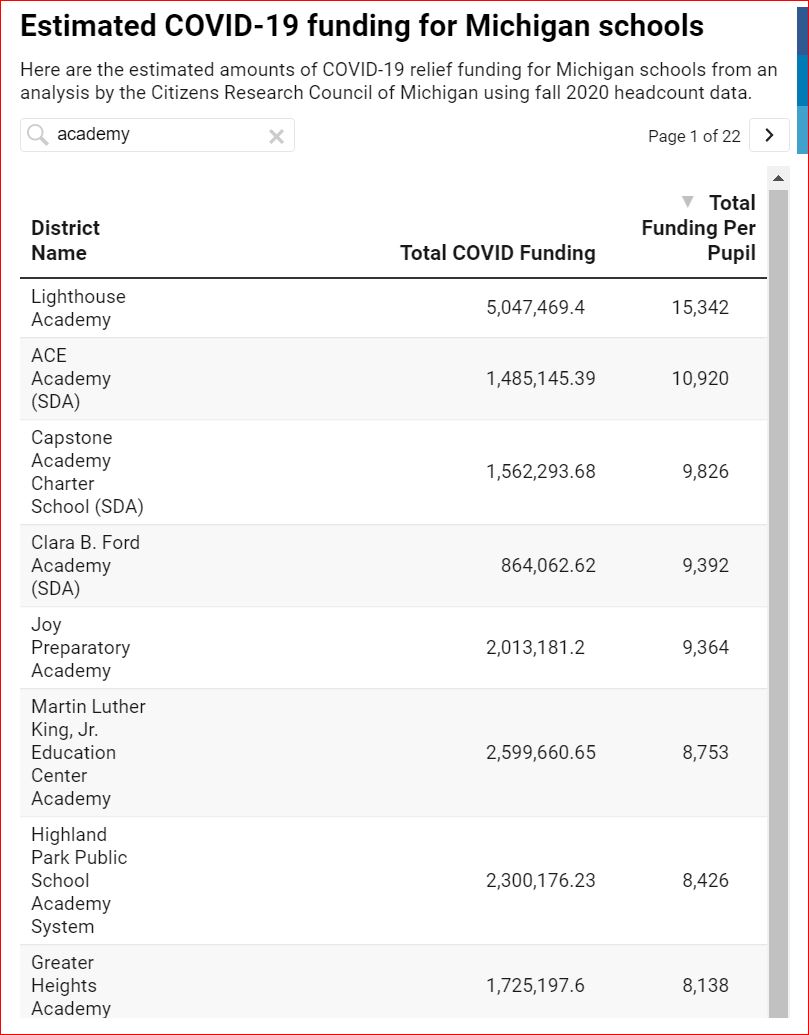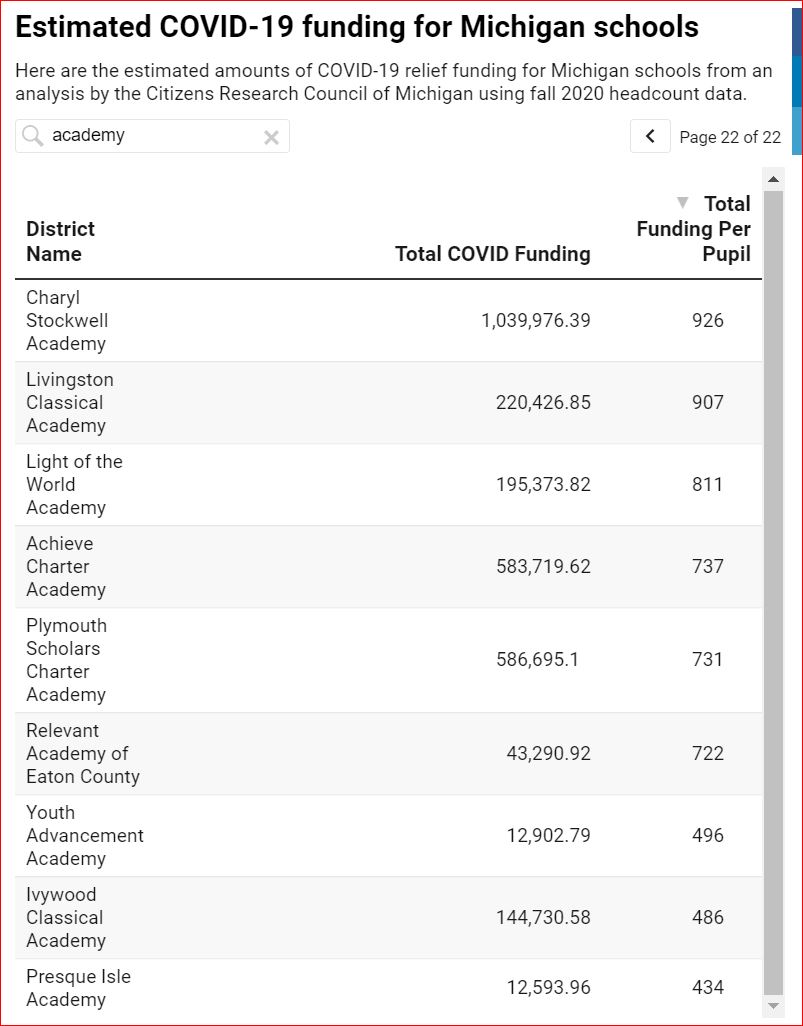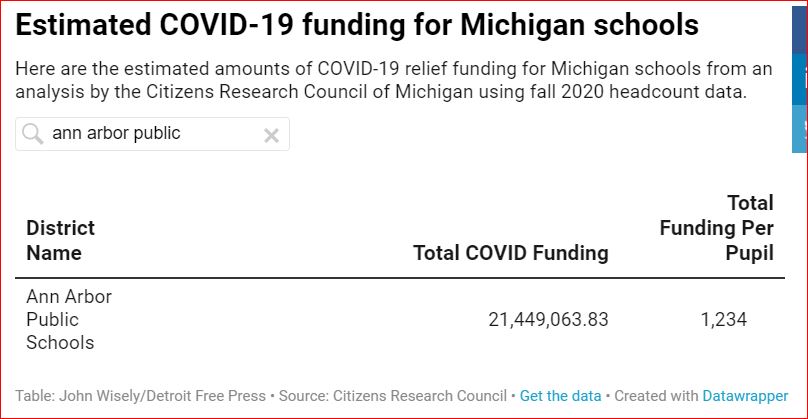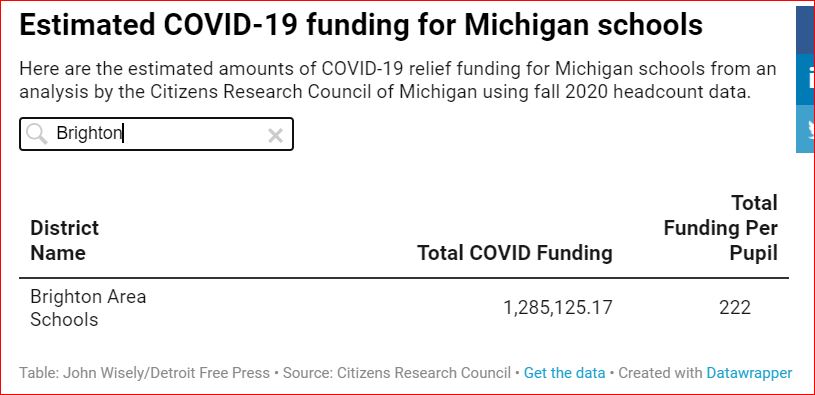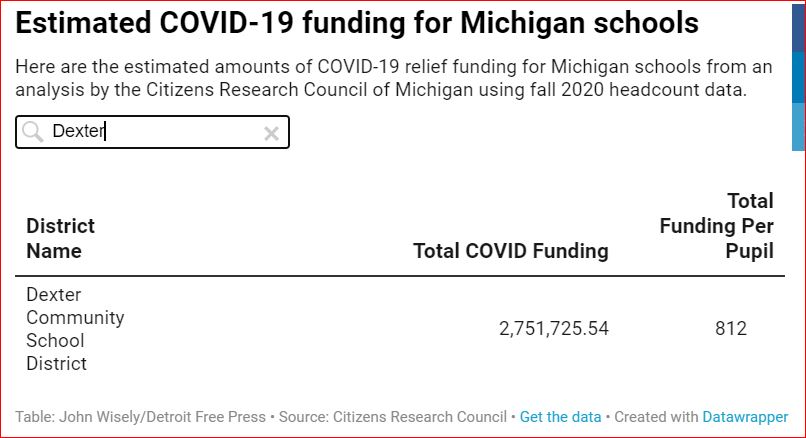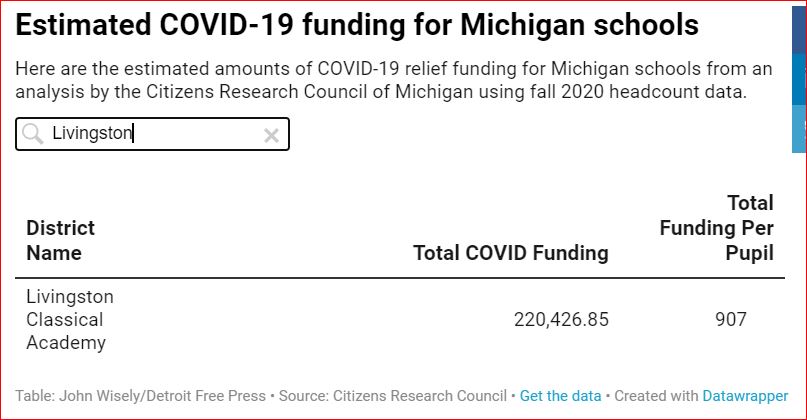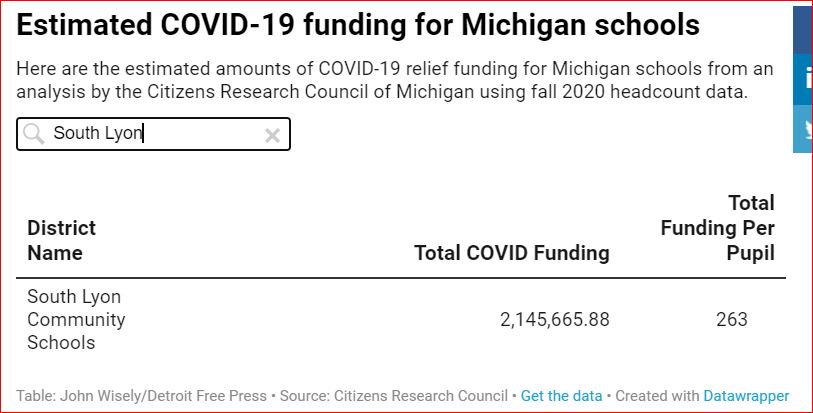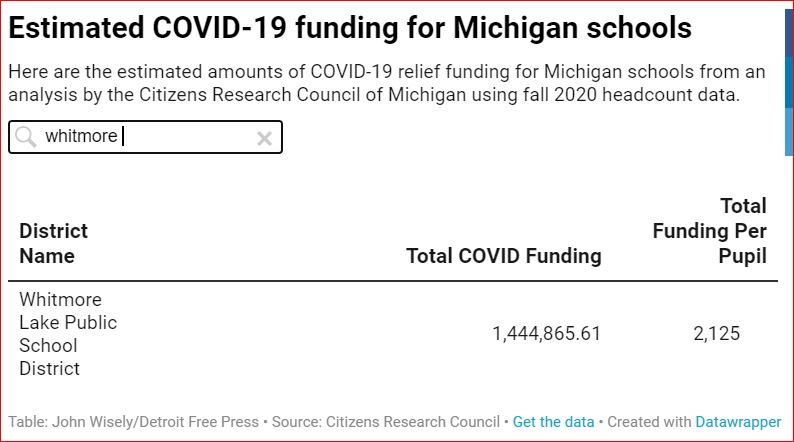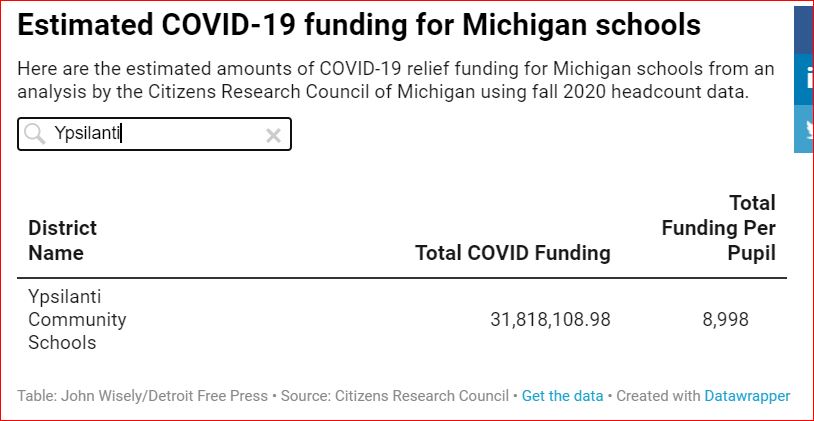9/22/2021 COVID-19 creates dire US shortage of teachers, school staff, by Jocelyn Gecker, Associated Press, The Detroit News
3/31/2021 Michigan schools to get $6B in COVID-19 funding: Here's how much your district will get, by John Wisely, Detroit Free Press
Below are screen caps of the search tool provided in the article.
Charter schools are raking it in and unaccountable - the Libertarian dream. Plunder the taxpayers, sap society, and call it freedom.
4/13/2021 Your Success Probably Didn't Come from Merit Alone, The Ezra Klein Show, The New York Times
A wide ranging discussion with Tressie McMillan Cottom, one of America's sharpest contemporary cultural critics
I barely made it through a third of my planned questions because so many interesting topics came up in each answer. We discuss the dangers of nostalgia, the social construction of smartness, the moral panics gripping America, why journalists are racing to platforms like Substack, how different mediums of communication shape our conversations, the central role status plays in American life, her research on the root causes of the uptick in “deaths of despair,” how beauty is constructed and wielded and much, much more. This is one of those conversations that could’ve gone on for four more hours.
3/26/2021 Private Schools Have Become Truly Obscene, by Caitlin Flanagan, The Atlantic
Why do these parents need so much reassurance? They “are finding that it’s harder and harder to get their children through the eye of the needle”—admitted into the best programs, all the way from kindergarten to college. But it’s more than that. The parents have a sense that their kids will be emerging into a bleaker landscape than they did. The brutal, winner-take-all economy won’t come for them—they’ve been grandfathered in. But they fear that it’s coming for their children, and that even a good education might not secure them a professional-class career.
“Half of lawyers say their income doesn’t justify the tuition they spent on their degrees,” Evans told me. Getting into a top medical school has become shockingly difficult; in 2018, U.S. News & World Report found that the average admission rate among 118 ranked medical schools was 6.8 percent. For the very best ones? The rate is 2.4 percent.
Daniel Markovits, a professor at Yale Law School, coined the term meritocracy trap—a system that rewards an ever-growing share of society’s riches to an ever-shrinking pool of winners. “Today’s meritocrats still claim to get ahead through talent and effort, using means open to anyone,” he has written in these pages. “In practice, however, meritocracy now excludes everyone outside of a narrow elite.” This is a system that screws the poor, hollows out the middle class, and turns rich kids into exhausted, anxious, and maximally stressed-out adolescents who believe their future depends on getting into one of a very small group of colleges that routinely reject upwards of 90 percent of their applicants.
9/2019 How Life Became an Endless, Terrible Competition, by Daniel Markovits, The Atlantic
Hardworking outsiders no longer enjoy genuine opportunity. According to one study, only one out of every 100 children born into the poorest fifth of households, and fewer than one out of every 50 children born into the middle fifth, will join the top 5 percent. Absolute economic mobility is also declining—the odds that a middle-class child will outearn his parents have fallen by more than half since mid-century—and the drop is greater among the middle class than among the poor. Meritocracy frames this exclusion as a failure to measure up, adding a moral insult to economic injury.
A person whose wealth and status depend on her human capital simply cannot afford to consult her own interests or passions in choosing her job. Instead, she must approach work as an opportunity to extract value from her human capital, especially if she wants an income sufficient to buy her children the type of schooling that secured her own eliteness. She must devote herself to a narrowly restricted class of high-paying jobs, concentrated in finance, management, law, and medicine. Whereas aristocrats once considered themselves a leisure class, meritocrats work with unprecedented intensity.
Public anger over economic inequality frequently targets meritocratic institutions. Nearly three-fifths of Republicans believe that colleges and universities are bad for America, according to the Pew Research Center.
Daniel Markovits is a Professor at Yale Law School and the author of The Meritocracy Trap
3/14/2019 Why the College Scandal Touched a Nonpartisan Nerve, by Yascha Mounk, The Atlantic
We disagree on just about everything, but we all seem to believe that there are some things money shouldn’t buy.
1/2/2016 Is the Drive for Success Making Our Children Sick? By Vicki Abeles, The New York Times
